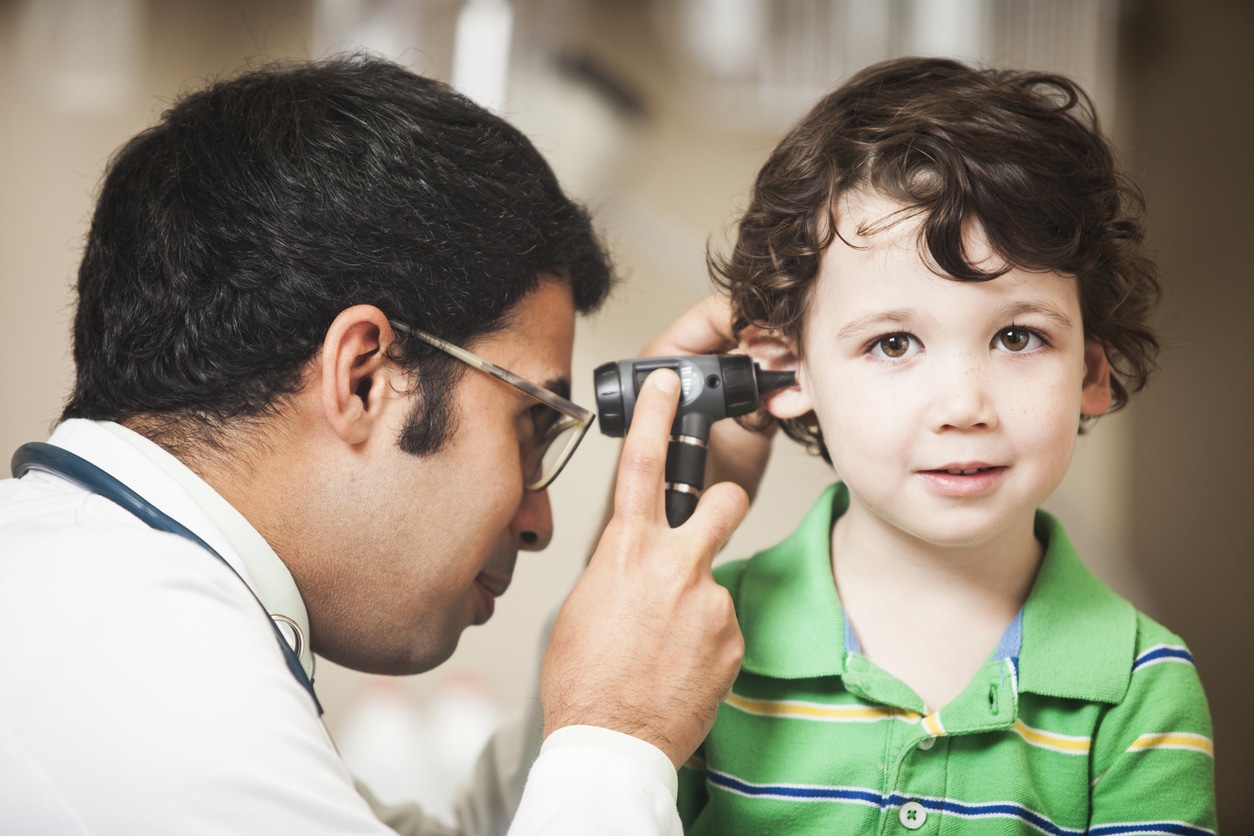Preparing your toddler for a hearing test may seem like a daunting endeavor. However, by preparing them ahead of time, you can make it an easier experience for everyone involved.
How Common Is Pediatric Hearing Loss?

While more common in older adults, hearing loss can happen at any age, including childhood. The Centers for Disease Control and Prevention (CDC) estimates that approximately 1 to 3 per 1,000 children have hearing loss.
In many cases, pediatric hearing loss will be discovered during a newborn hearing loss screening. However, in other cases, symptoms don’t develop until later in childhood.
The Importance of Treating Hearing Loss in Children Early
Untreated hearing loss can cause developmental delays in children, specifically when it comes to their speech and language skills. These delays can start almost right away, as babies with hearing loss often don’t start babbling until a later age than infants with normal hearing.
As children with untreated hearing loss get older, they may be slower to speak their first words, have more difficulty learning to read, and struggle to speak or understand more complex sentences. This can cause them to struggle academically when they get old enough to attend Lakeview Elementary School and even make it harder to connect and form friendships with their peers.
This is why hearing tests are essential if your toddler is presenting with signs of hearing loss.
Getting Ready for Their Hearing Test
- Get your child used to having their ears touched. Obviously, a lot of attention will be placed on your child’s ears during an audiological exam. If they have never had their ears touched, they may be upset or confused during the examination. Practice with them by doing things like gently touching and looking into their ear. Have them do the same to you and explain that this is what the doctor will do and that it’s OK.
- Have them wear headphones around the house. Your child will have to wear headphones for part of their hearing test, so it’s helpful if they are comfortable with the sensation of having them on their ears. In the days leading up to the test, have them wear headphones while watching their cartoon or listening to songs they like. Just make sure the volume isn’t up too loud as that could worsen any hearing loss.
- Practice conditioned play activities. Another key element of audiological exams for toddlers is called conditioned play audiometry. Your child will perform an action, such as putting a peg on a board or placing a block on a desk, when they hear a certain sound cue. Practice this at home by doing something like having them put a toy in a bucket every time you say “beep.”
For more information or to schedule an appointment with one of our pediatric hearing experts, call Evergreen Speech and Hearing Clinic today.